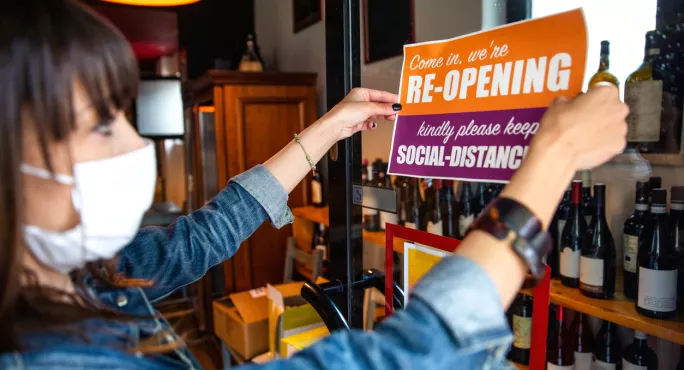- Home
- Why the government likes pubs more than schools
Why the government likes pubs more than schools

As pressure grows on schools for all pupils to return in September, the political and media debate has reached a new level of absurdity. Newspaper headlines over the past month have compared pubs (opening) with schools (not opening) - a comparison and conflation presumably based on the idea that both constitute public gatherings.
And, this weekend, Anthony Costello, a former director of maternal, child and adolescent health at the World Health Organization, has weighed in to say that “it’s very odd in Britain that we’re opening pubs before schools. It says something about our priorities”.
But there are much more serious distinctions between the two institutions - and these put teachers at significantly greater risk than pub workers.
Schools offer a much larger-scale and far more complex level of public service than pubs - and in buildings that have been allowed to deteriorate over the years. Increased pupil numbers, particularly in secondary schools, mean that classrooms are often overcrowded. Numerous Tes articles recently have revealed the impossibility of social distancing at school.
Dangers to the teacher
Pubs maintain social distancing by judicious arrangement of tables, with customers facing inwards. In secondary schools, however, the education secretary appears to be advocating sitting pupils in rows facing the teacher. This may well limit pupil-to-pupil transmission. But no one seems to have mentioned the dangers to the teacher of up to an hour and 20 minutes directly positioned so as to inhale the vapour from more than 30 young people in a confined space.
On public transport, children under the age of 2 do not have to wear face masks. Everyone else does. In pubs, customers in family or household bubbles have to book a table and remain seated, while an order is taken from their table. Gone are the days of hordes converging on the bar to place their orders.
Pub customers have to book tables, giving their contact details, so that they can be contacted if another customer comes down with the virus. And premises can be closed down if necessary, to permit deep cleaning and quarantine.
In secondary schools, subject teachers will have to teach more than one class. If there are five one-hour periods in a day, with more than 30 students in a class, this means that the adult - the most vulnerable person in the room - is exposed to 150 possible risks.
Clearly, there is a far higher risk to those working in a school than in a pub.
Highly mobile environment
It seems now that the spreaders of the virus in hospitals were not doctors and nurses, but the cleaners and support staff moving from ward to ward. Has no one thought to make any sort of connection with the situation faced by teachers in the highly mobile environment of schools?
The hospital staff were found to have high levels of antibodies in their systems, but they were often asymptomatic.
We have as yet to test schoolchildren and staff for antibodies, to see what the real situation is. So far the government has got away with asserting that children are not yet known to be spreaders and are certainly at lower risk.
The fact that schoolchildren range in age from three-year-olds in nursery to adults of 18 - and older - in FE colleges is deliberately overlooked. The higher risks staff face from older students ruin the carefully constructed narrative that justifies putting the nation’s teachers at higher risk than almost any other sector of the community.
Unlike pubs, schools will not be closed down completely if there is an outbreak of Covid-19: the guidance says that there will be an assessment of the situation, with sections of the community quarantined.
Spitting in the corridors
Finally, the issue that has been deliberately missed out of the public discourse is that of behaviour. In normal circumstances, many schools have to manage challenging, even antisocial behaviour on a daily basis. It’s one of the main reasons why teachers don’t stay long in the classroom.
Spitting has now become a criminal offence, and if a customer in a pub were to spit at bar staff, they would most likely be escorted off the premises and probably charged by the police. There has yet to be a similar level of protection for teachers in the normal course of their duties.
A recent article by Tes behaviour columnist Amy Forrester indicates that the Department for Education is aware of the risks, but says nothing about the sanctions schools can employ to keep their staff safe.
For those working at the chalkface and the screenface, exhausted by three months of constantly changing directives, the measures in place are woefully inadequate.
The media’s specious arguments, portraying pubs and schools as public-serving, customer-orientated institutions that can open in an instant, may support the government. But they expose an underlying lack of perception and compassion.
Yvonne Williams is head of English and drama in a secondary school in the South of England. She has contributed chapters on workload and wellbeing to Mentoring English Teachers in the Secondary School, edited by Debbie Hickman (Routledge)
Keep reading for just £1 per month
You've reached your limit of free articles this month. Subscribe for £1 per month for three months and get:
- Unlimited access to all Tes magazine content
- Exclusive subscriber-only stories
- Award-winning email newsletters



